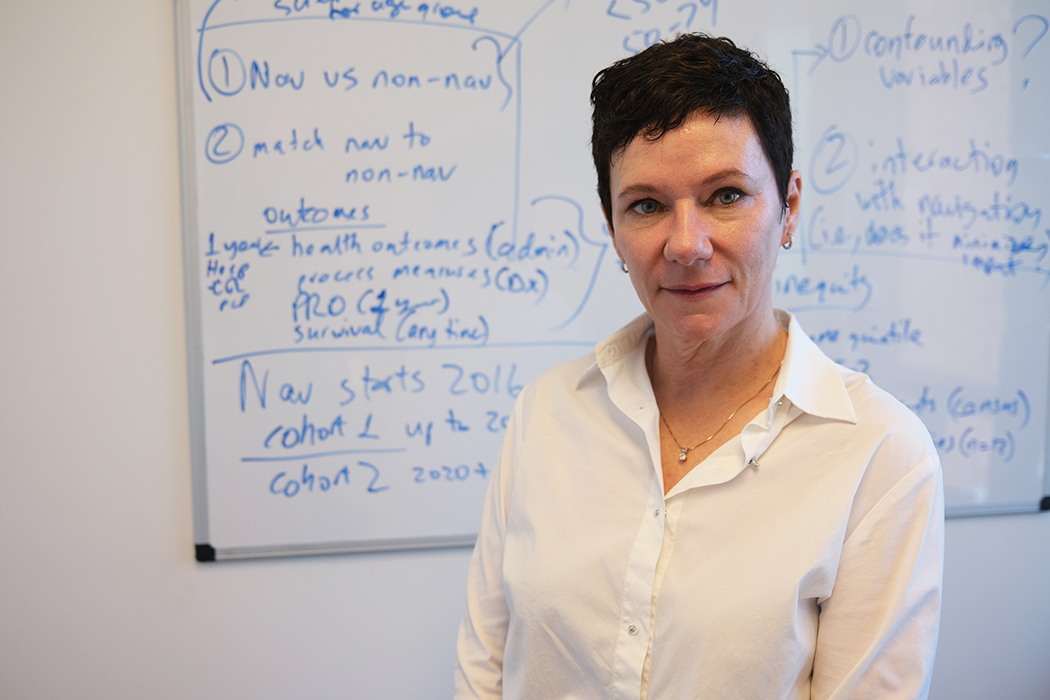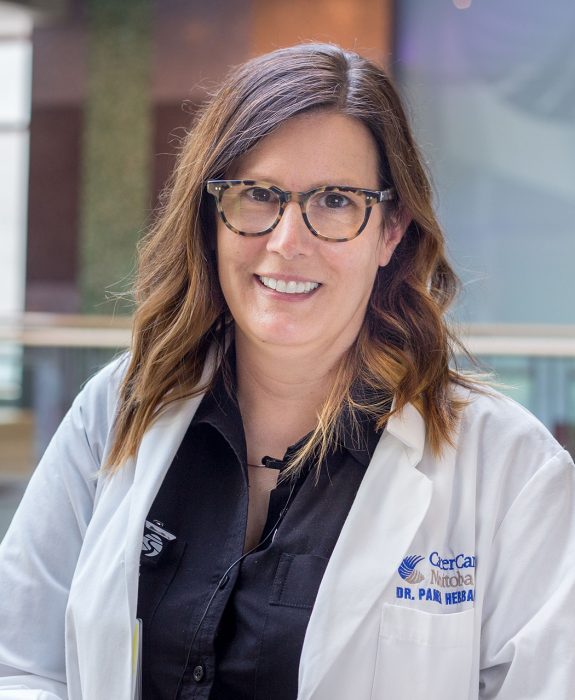
Dr. Kathleen Decker is the principal investigator on a study looking at the impact that the COVID-19 pandemic has had on cancer care in Manitoba.
UM study focuses on impact of COVID-19 pandemic on cancer care in Manitoba
A University of Manitoba study focused on understanding the impact that the COVID-19 pandemic has had on cancer care in Manitoba has received more than $439,000 from the Canadian Institutes of Health Research (CIHR). The grant is part of CIHR’s Addressing the Wider Health Impacts of COVID-19 funding.
Dr. Kathleen Decker, associate professor of community health sciences, Max Rady College of Medicine, and a senior scientist and lead of the health services research platform at CancerCare Manitoba Research Institute, said the pandemic has had an unprecedented impact on cancer control in the province – from screening and diagnosis to treatment and survival.
Decker, the study’s principal investigator, said some impacts of the pandemic included changes to the cancer screening programs, shifts from in-person to virtual care for some patients, changes to chemotherapy and radiotherapy schedules and the prioritization of critical cancer surgeries.
“We need to measure the actual impact of the COVID-19 pandemic on cancer care in Manitoba using real-world data, and that’s what we want to do with this study,” Decker said.
The research will examine the impact of the pandemic on breast, cervical and colorectal cancer screening throughout the pandemic. It will also look at the impact on diagnostic tests for breast, cervical and colorectal cancer, and the impact on cancer incidence and changes in the stage at which a person is diagnosed with cancer.
As well, the study will evaluate the impact of the pandemic on treatment rates and time to first treatment. The project will look at the time saved for patients who had virtual care and didn’t have to travel to appointments. It will also evaluate the impact of the pandemic on overall survival.
“The goal of the study is to really understand how the pandemic impacted cancer care because this isn’t going to be the last time the cancer care system is impacted by big changes and we don’t want to be vulnerable in the future,” Decker said. “We want to learn from this so we can make our system better and more resilient, so that if this happens again, or even if there are other disruptions to the system – like flooding or equipment failures or supply chain issues – we can manage it better.”

Dr. Pamela Hebbard
Dr. Pamela Hebbard, assistant professor of surgery, Max Rady College of Medicine, and head of surgical oncology at CancerCare Manitoba, said that the disruptions in health-care services could mean there are people who have missed or delayed cancer diagnoses. She said there are some unanswered questions they want to answer with this research.
“We know that the patients who came through the door had received care, but one of the lingering questions is – are we missing patients?” said Hebbard, a collaborator on the study. “Are patients sitting at home afraid to get health-care services and now going to have more advanced cancers? We’re looking to see if there’s a deficit, and if we don’t see them, where did they go? Some patients may have died of COVID. Just being able to explain that and then plan the cancer control, I think it’s really important.”
Initial funding for the study came from Research Manitoba and the CancerCare Manitoba Foundation.






